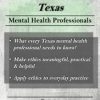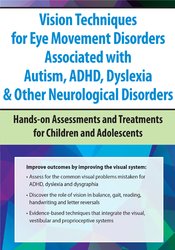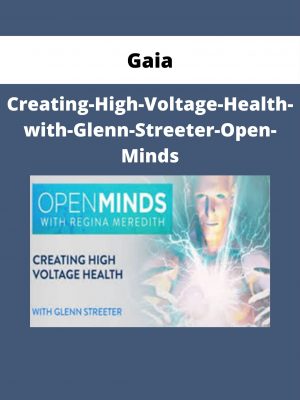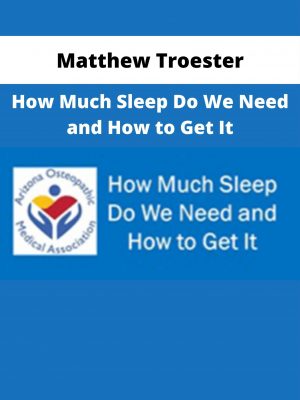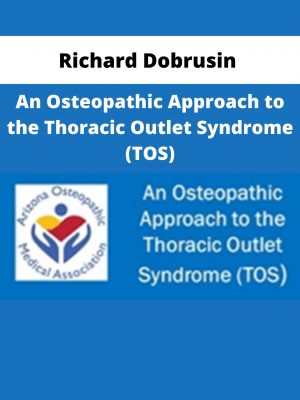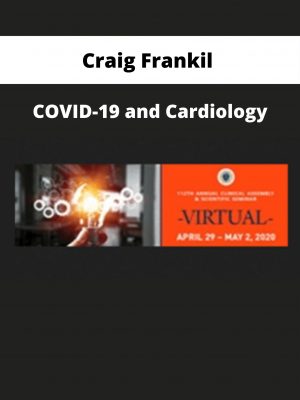Robert Constantine – Vision Techniques for Eye Movement Disorders Associated with Autism
$219 Original price was: $219.$62Current price is: $62.
Shopping Instructions:
- DISCOUNT 15% : SHOP15
- Product Delivery: Within 1 – 12 hours after purchase.
Available for Pre-Order. This product will be available within a few days.
Robert Constantine – Vision Techniques for Eye Movement Disorders Associated with Autism
The Pediatric Eye Exam
- Ophthalmology or Optometry or Vision Therapy
- Case study: Becca
Anatomy of the Visual System
- The anatomy of the Orbit Muscles of the eye
- The visual pathways of vision in the brain
- Magnocelluar vs Parvocellular Stream
Congenital Visual Problems
- Coloboma
- Optic Nerve Hypoplasia: Case study: Blake
- Retinopathy of Prematurity
- The role of therapists in Cortical Visual Impairment
Common Eye Movement Problems Affecting PT and OT Outcomes
- Suppression Strabismus, Anisometropia, and amblyopia
- Nystagmus
- Convergence Insufficiency
- Accommodative problems
Assessment of Eye Movements and Near Vision
- Tracking
- Saccades
- Convergence
- The Near Vision System: Case study: Raleigh
- Lab Time
Treatment Techniques for the Visual System
- DIY and High-Tech solutions
- The Brock String and Hart Chart Prism and lenses
- Holistic treatment techniques
- Clinic videos
- Case studies describing treatment
Vision Tools for Balance, Gait and Posture
- BiNasal Occulsion
- “Glasses that fix toe-walking”
- Case studies: Charlotte; Audry
- Mid-Line Shift Syndrome: Case study: Ben
Vision Problems Associated with:
- TBI, Stroke and Concussion
- ADHD:
- Case study: Bryson and Nate
- Dyslexia
- Autism
- Sensory Modulation Postural
- Dysfunction: Case study: Jon
Mid-Level Visual Processes
- Visual motor integration tips: Case study: David
- Visual processing disorder
- Visual perceptual deficits
Coding and Goals for Eye Movement Problems
- ICD-10 codes common for eye movement problems
- Basic goals for eye movement problems
- Resources for more information
Would you like to receive Robert Constantine – Vision Techniques for Eye Movement Disorders Associated with Autism ?
Description:
Do you work with children with ADHD, dysgraphia, dyslexia, letter reversals and reading problems that do not respond to typical treatments? Are you frustrated by a lack of progress in children who exhibit poor:
- Reading skills
- Handwriting
- Posture
- Visual motor integration
- Ball handling skills
- Visual processing and visual perceptual skills?
Do you know a child that cannot catch a ball and frequently trips? What about the child with autism that studies small objects in the peripheral? Or a low tone child that struggles with handwriting? These problems may be related to an eye movement or near vision focusing difficulties.
Watch this recording and learn to find the root of these problems by learning to assess eye movements and near vision. You will learn evidence-based techniques to improve vision that integrate the visual, vestibular and proprioceptive systems using interventions developed by an occupational therapist that will get results.
Thorough video demonstrations and case studies you will learn treatment techniques, including: DIY and high-tech solutions, the Brock String and Hart Chart, prism and lenses, holistic techniques, tools for balance, gait and posture and more!
These interventions can be used immediately and effectively in your practice to improve outcomes in your young patients. Master these treatment techniques and increase your confidence in your own practice abilities!
Related products
HEALTH & MEDICAL
Gaia—Creating-High-Voltage-Health-with-Glenn-Streeter-Open-Minds
HEALTH & MEDICAL
Matthew Troester – How Much Sleep Do We Need and How to Get It
HEALTH & MEDICAL
Dr Heidi M Crocker – Yoga Alignment | Speaker: Heidi Crocker EdD, DC
HEALTH & MEDICAL
HEALTH & MEDICAL
Regina Meredith – Conscious Media Network with Regina Meredith – Eric Pearl on The Reconnection
HEALTH & MEDICAL
HEALTH & MEDICAL


